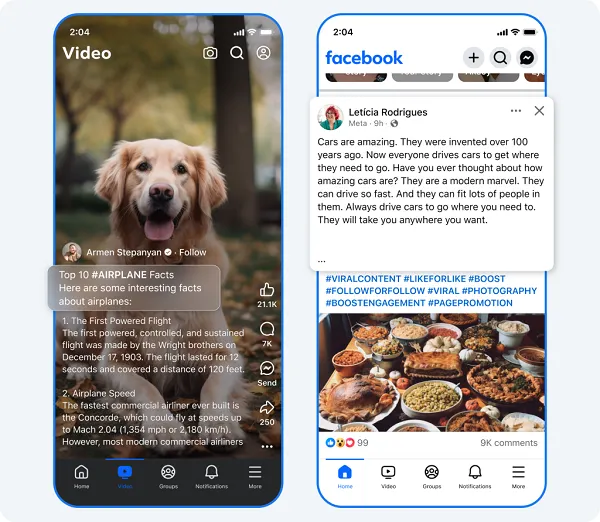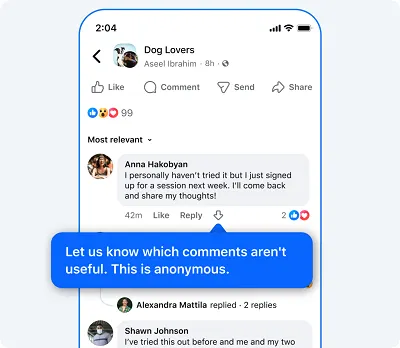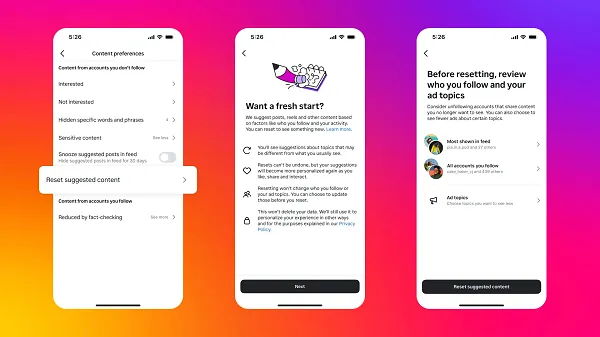# Fb Broadcasts New Measures to Fight Spam Posts and Feedback

Meta’s taking some new steps to crack down on spammy content material on Fb, with a purpose to fight the rise of inauthentic profiles searching for to recreation its algorithms for engagement.
Although AI has grow to be a much bigger a part of this course of, which Meta is actively encouraging individuals to make use of, and that’s not a spotlight of this new junk content material crackdown. Which looks as if an oversight, however then once more, encouraging AI use on one hand, and limiting it on the opposite, could not work for Fb’s longer-term objectives.
What Fb is cracking down on is extra overt engagement bait, together with irrelevant put up captions and repeated posts from coordinated networks of accounts.
First off, Meta’s seeking to fight the usage of unrelated captions, the overuse of hashtags.

As defined by Meta:
“Some accounts put up content material with lengthy, distracting captions, usually with an inordinate quantity of hashtags. Whereas others embody captions which are fully unrelated to the content material – suppose an image of a cute canine with a caption about airplane info. Accounts that have interaction in these ways will solely have their content material proven to their followers and won’t be eligible for monetization.”
Why do individuals do that?
Effectively, there are two theories. For one, some have speculated that these informative-type caption texts embody numerous key phrases that may assist enhance attain, by interesting to Fb’s algorithm. Incorporating extra knowledge-type overviews provides the system extra key phrases to go on, and that, apparently, can enhance attain in some cases.
Longer captions additionally encourage extra studying, and the longer it takes somebody to learn the caption, the extra instances the video performs by means of, thus rising engagement.
I’m unsure that both of those theories are true, however that, seemingly, is what’s impressed the rise in these long-winded, generally off-topic descriptions.
Meta’s additionally seeking to crack down on networks of profiles that share the identical content material.
“Spam networks usually create lots of of accounts to share the identical spammy content material that clutters individuals’s Feed. Accounts we discover partaking on this habits won’t be eligible for monetization and might even see decrease viewers attain.”

Fb’s additionally attempting out remark downvotes as soon as once more, as a method to fight much less invaluable, and sure spammy contributions.

The concept of Fb’s remark downvotes is to fight spam, however as with each different time that Fb has tried this (in 2018, 2020, and 2021, and on Instagram this 12 months), there’ll be confusion about what that down arrow really means. Some will use this to point feedback that they don’t like, versus problematic remarks, and that variance clearly skews the info supplied by this measure.
However Meta clearly nonetheless sees some worth in it, so it’s attempting out remark downvotes for spam and junk replies as soon as once more.
Meta’s additionally seeking to enhance its efforts to fight impersonation, whereas it’s additionally selling its Rights Supervisor instruments to assist deal with imposters and fakes.
Together, these ought to assist Meta to cut back the quantity of clear spammy junk in consumer feeds.
Nevertheless it received’t deal with this kind of misuse:

As famous, AI-generated spam is now rife on Fb, with The Social Community’s viewers seemingly extra inclined to those faux depictions.
That looks as if a extra important downside than the above-noted parts, however once more, on condition that Meta’s additionally pushing you to generate photos by means of it AI instruments at each flip, I don’t know that it’s going to have the ability to actually crack down on this.
So whereas combating all types of spam and junk is necessary, the place potential, I’m unsure Fb is really targeted on the suitable parts simply but.
Andrew Hutchinson




![#
7 Tricks to Develop Your Viewers on Each Social Media Platform [Infographic] #
7 Tricks to Develop Your Viewers on Each Social Media Platform [Infographic]](https://www.socialmediatoday.com/imgproxy/wJXBWLVcB2A6fudxz70SguwUcE-JgLc0vl7T_jigQHw/g:ce/rs:fill:770:364:0/bG9jYWw6Ly8vZGl2ZWltYWdlL3NvY2lhbF9ncm93dGgxLnBuZw.png)